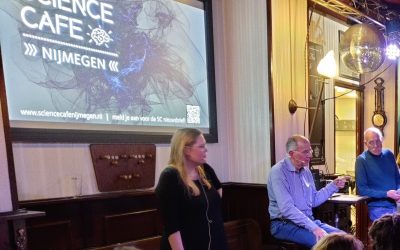 The CANDY Project
The CANDY Project
In Europe, 10-15% of children and adults or 50 to 75 million individuals are affected by neurodevelopmental conditions, such as autism, attention-deficit hyperactivity disorder (ADHD), intellectual disability (ID), motor problems and language disorders. It is not hard to imagine that one of these conditions alone can have a serious impact on a person’s life. What makes the situation even worse is the fact that several of these conditions often co-exist and, on top of that, go along with somatic illnesses, such as epilepsy. This significantly affects both life expectancy and quality of life and there are no effective treatments to date.
In the CANDY project, we investigate the biological links between these neurodevelopmental conditions and co-existing somatic illnesses and how treatment and monitoring of affected patients can be improved.
%
of the EU population are affected by Neurodevelopmental Conditions such as autism, ADHD or ID
Autism

People on the autism spectrum experience persistent difficulties with social interaction and communication, display restricted and repetitive behaviour and/or have special circumscribed interests and activities. They often also experience sensory difficulties, such as increased or reduced sensitivity to light, sound, colour, smell, taste or touch.
Read More
ADHD

ADHD belongs also to the group of neurodevelopmental conditions with onset usually occurring in childhood and adolescence. It manifests itself by problems with attention span and self-regulation and/or by impulsivity and high physical restlessness (hyperactivity). A clinical diagnosis is made when persistent symptoms are associated with impairments of functioning at home, school, workplace or during leasure time. However, symptoms alone are not sufficient for a diagnosis.
ID

Intellectual disability (ID) is characterized by significant limitations both in intellectual functioning (reasoning, learning, problem solving) and in adaptive behavior, which covers a range of everyday social and practical skills. This disability originates before the age of 18.
Partners
European countries
Project duration (months)
Our Research
Read more about the “problem” and the opportunity in CANDY, and more detailed information about biomarkers, the microbiome, neuroinflammation and critical periods.
FAQs »
Facts & Figures »
The Team »

CANDY PIP Study
In CANDY we are collaborating with the AIMS-2-TRIALS project and their study “Pre-School Brain Imaging and Behaviour Project (PIP)”. PIP is the first study to track how pre-school children with and without autism develop over time and across Europe.

Multiplex Study
This is the first study to track the heritability of rare genetic risk variants for several neurodevelopmental conditions. Neurodevelopmental conditions likely result from a combination of both rare genetic variants and many common low-risk variants.
News & Events
CANDY’s Final General Assembly
In early June 2025, the CANDY consortium met for its final General Assembly. From 3–6 June, partners from across Europe met in Castelldefels, a seaside town just south of Barcelona. With its calm beaches and Mediterranean atmosphere, the location offered the perfect...
3rd Periodic Reporting successfully accomplished
On 30th June 2024 the third CANDY project period has officially ended. This means one year to go and the CANYD consortium had to submit a detailed progress report to our funding organisation, the European Commission. Although we encounter a slight delay in our...
“Autism and ADHD: Two Sides of the Same Coin?” – Science Café Nijmegen
The Science Café Nijmegen is a Café where scientists and the general public come together to discuss current scientific topics and discoveries in an comfortable and informal setting. It aims to make science more accessible and exciting to everyone, supporting a...


















